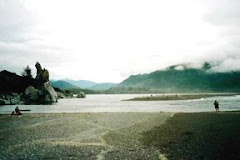Q: Who were the original members of the Klamath Basin Coalition and what were the key proposals in the Coalition’s original vision for the Klamath Basin? A: The following 10 organizations are founding members of the Klamath Basin Coalition: Institute for Fisheries Resources, Klamath Basin Audubon Society, Klamath Forest Alliance, Northcoast Environmental Center, Oregon Wild, Pacific Coast Federation of Fishermen's Associations, Sierra Club, The Wilderness Society, Trout Unlimited, Waterwatch of Oregon. The Coalition was organized by activists from the Klamath Forest Alliance and Oregon Natural Resources Council (now Oregon Wild).
The KBC's original vision: "Our vision is to restore a healthy, naturally diverse, and productive Klamath Basin ecosystem by reestablishing, to as great a degree as feasible, natural hydrological conditions and ecological functions throughout the entire basin. This should be accomplished through a comprehensive restoration program."
Bonus Q: There are about 200,000 irrigated acres in the federal Klamath Project. How much power does it take on an annual basis to irrigate those 200,000 acres?
Bonus A: The information is a secret. KlamBlog suspects the reason it is not revealed is because the Klamath Irrigation Project is among the most energy wasteful non-military government projects in the entire USA! We challenge the Bureau of Reclamation and Irrigation Elite to prove otherwise!
And here's the new Question of the Week:
If PacifiCorp's Klamath River Dams can not be legally relicensed (because they cannot comply with the Clean Water Act) who is responsible for removing them from the River?(Please post your answer in a comment)


1 comment:
Ah - but another question of the week is, (1) if the sediment behind the dams contains levels of dioxin and other toxins that would stay suspended in the river/estuary when released; and/ or (2) if the amount and character of the sediment would likely raise the bed of the river for some distance downstream and cause or increase flooding of adjacent lands, can the dam be breached at all? Which health threat would be greater?
Post a Comment